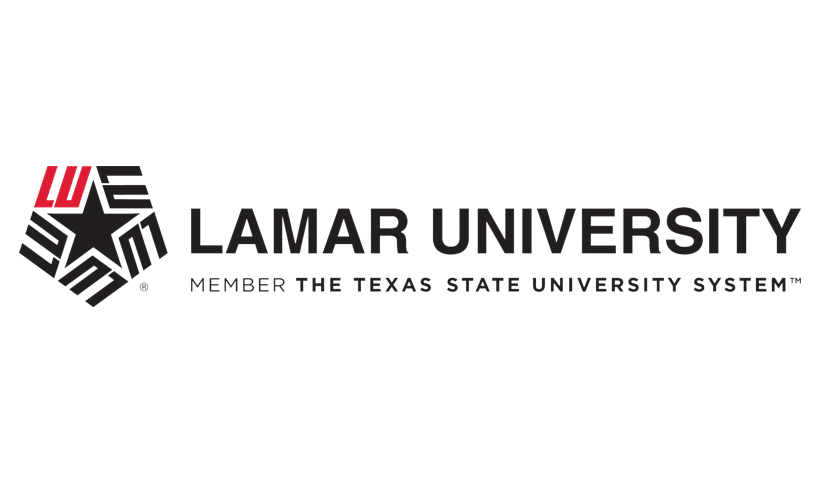The counseling field offers diverse career paths and specializations, with licensed professional counselor (LPC) and licensed clinical professional counselor (LCPC) being two prominent licensure titles in the United States. While both credentials indicate advanced expertise in the realm of counseling, understanding their nuances can assist prospective students in making informed academic and career decisions. It’s important to look at the distinctions and similarities when comparing LPC versus LCPC.
LPC vs. LCPC: Definitions, Similarities, and Differences
What Is an LPC?
A licensed professional counselor (LPC) credential is given to professionals who have attained a master’s degree in counseling or a related field. These professionals are trained to assist individuals, families, and groups in addressing and managing emotional and mental disorders. They work in diverse settings such as schools, mental health clinics, hospitals, and private practices.
Key responsibilities: Providing therapy, conducting assessments, developing treatment plans
Requirements: Master’s degree in counseling or related field, supervised clinical hours, passing a state-specific licensing exam
Specializations: Substance abuse counseling, marriage and family therapy, school counseling, among others
Consider a Featured Online Counseling Program
| School and Program Information | Online Program? Entry Requirements | Course Information | |
|---|---|---|---|
|
Walden University
MS in Clinical Mental Health Counseling
 CACREP Accredited CACREP Accredited |
✔ Online
GRE scores not required
|
Prepare to become the competent, compassionate counselor you were meant to be with Walden's CACREP-accredited MS in Clinical Mental Health Counseling program.
|
Learn More |
|
Northwestern University
Online MA in Counseling
 CACREP Accredited CACREP Accredited |
✔ Online
GRE Not Required
Bachelor's Required |
CACREP-accredited online Master of Arts in Counseling from The Family Institute at Northwestern University. Prepare to pursue licensure in as few as 18 months.
|
Learn More |
|
Northwestern University
Master of Science in Marriage and Family Therapy
COAMFTE Accredited
|
✔ Online
GRE Not Required
Bachelor's Required |
Complete your COAMFTE-accredited MFT online program in as few as 21 months. No GRE is required, but applicants must hold an undergraduate degree.
|
Learn More |
|
Grand Canyon University
Master's Degree in Counseling
 CACREP Accredited CACREP Accredited |
✔ Online
|
CACREP-accredited MS in Clinical Mental Health Counseling. Emphases: Marriage & Family Therapy, Christian Counseling, Childhood & Adolescence Disorders, & Trauma.
|
Learn More |
|
Liberty University
MA: Clinical Mental Health Counseling
 CACREP Accredited CACREP Accredited |
✔ Online
Online with required intensives
|
Our CACREP-accredited online master’s in counseling helps you become a skilled mental health counselor ready to empower others for positive change.
|
Learn More |
|
National University
Master of Science in Clinical Mental Health Counseling
WSCUC Accredited
|
✔ Online
GRE Scores Not Required
|
Focused on training highly skilled counselors to provide impactful and culturally sensitive mental health services in their communities.
|
Learn More |
|
University of Denver
Master of Arts in School Counseling
 CACREP Accredited CACREP Accredited |
✔ Online
No GRE Required; Minimum GPA 2.5 Required
|
With no GRE required, earn your CACREP-accredited Master's in School Counseling online in as few as 24 months from the University of Denver.
|
Learn More |
|
Mid-America Christian University (MACU)
Master of Science (MS) in Counseling
Higher Learning Commission (HLC)
|
✔ Online
100% Online
|
Oklahoma’s largest MS in Counseling program, with emphases in addiction and substance abuse, applied behavioral science, clinical mental health counseling, and more!
|
Learn More |
|
The Chicago School
M.A. in Clinical Mental Health Counseling
 CACREP Accredited CACREP Accredited |
✔ Online
Bachelor's Degree Required.
|
This online CMHC program prepares students for a career offering mental health services in a variety of settings. CACREP-accredited.
|
Learn More |
*Sponsored Counseling Programs
For detailed degree information, view the guides to:
Online CACREP Accredited programs | Online MPCAC Accredited programs
What Is an LCPC?
A licensed clinical professional counselor (LCPC) is also a credential that requires a master’s or doctoral degree, but often necessitates more stringent clinical training or supervised hours. This designation emphasizes clinical practice, making LCPCs particularly adept at diagnosing and treating more complex mental health conditions.
- Requirements: Master’s or doctoral degree in counseling or related field, extended supervised clinical hours compared to LPC, passing a comprehensive licensing exam
- Specializations: Clinical mental health counseling, trauma therapy, and neuropsychology, among others
- Key responsibilities: Clinical diagnosis, advanced therapeutic interventions, multidisciplinary collaboration
Key Similarities
Both LPCs and LCPCs:
- Possess advanced degrees in counseling or closely related disciplines
- Undertake rigorous training and supervised clinical hours
- Must pass a licensing exam to practice
- Provide counseling services, albeit with varying depths of clinical focus
Key Differences
While there are overlaps in the roles of LPC and LCPC, distinctions arise in the depth of clinical training, diagnostic capabilities, and state-specific licensure requirements. For instance:
- LCPCs often undergo more extensive clinical training, equipping them to handle intricate cases.
- Certain states may recognize LPCs for general counseling roles, whereas LCPCs are recognized for more specialized clinical roles.
- The licensing process and exams may differ, with LCPC exams sometimes encompassing more in-depth clinical topics.
LPC vs. LCPC: Titles by State
While both the LPC and LCPC designations are recognized nationwide, the exact title and its implications can vary based on the state of licensure. State counseling boards set their regulations, and this can lead to differences in title, scope of practice, and licensure requirements.
- LPC: Known as licensed mental health counselor (LMHC) in some states. Might require fewer supervised hours in some regions.
- LCPC: Recognized as licensed clinical mental health counselor (LCMHC) or licensed professional clinical counselor (LPCC) in other states. Typically entails more extensive clinical training.
- State variations: Some states might not differentiate between the two titles, using one over the other. In contrast, other states may have distinct roles and responsibilities for each designation.
It is crucial for prospective counselors to consult their state’s licensing board or professional counseling association for precise guidelines and definitions.
LCPC vs. LPC: Salary and Job Outlook
LCPC Salary
According to data from Payscale, the median annual salary for licensed clinical professional counselors (LCPCs) stood at approximately $63,000 as of 2023 . However, this can range between $45,000 and $75,000 based on factors like location, experience, and specialization.
- Top earners: Those with specialized skills, such as neuropsychology or trauma therapy, might earn on the higher end of the spectrum.
- Geographical differences: Urban areas or states with a high demand for mental health professionals often offer higher salaries.
- Work setting: Private practices, hospitals, or specialty clinics might offer different compensation packages compared to schools or community centers.
LPC Salary
For licensed professional counselors, the median annual salary was around $60,000 in 2023. The salary range typically spans from $40,000 to $75,000. Just like with LCPCs, multiple factors can influence these numbers.
- Experience: As counselors gain more experience and build a clientele, their earning potential can increase.
- Specializations: Counselors focusing on areas like substance abuse or marriage therapy might have different earning brackets.
- Location: States or cities with limited mental health resources might pay more to attract qualified professionals.
LCPC and LPC Job Outlook
The job growth projection for LCPCs and LPCs over the next decade is optimistic. The U.S. Bureau of Labor Statistics (BLS) predicts a growth rate of about 18% for mental health counselors between 2022 and 2032, driven by increased awareness of mental health, expanded insurance coverage, and societal acceptance of therapy.
To ensure success in either profession, continuous learning, networking, and adapting to the evolving needs of the population are crucial.
LPC vs. LCPC Education and Curriculum
What Degree Do I Need to Become an LPC?
To become a licensed professional counselor (LPC), one typically should have a master’s degree in counseling or a related field. This advanced degree should come from a regionally accredited institution and usually encompasses:
- Approximately 60 semester hours
- Courses in topics like human development, counseling theory, ethics, group counseling, and assessment
- A supervised practicum and internship experience
LPC Curriculum
The curriculum for LPCs is structured to provide foundational knowledge and practical skills. Common courses in the LPC curriculum include:
- Counseling Techniques and Interventions: Exploring various therapeutic techniques and interventions employed in counseling
- Multicultural Counseling: Understanding diverse populations and implementing inclusive therapeutic practices
- Career Development and Counseling: Assisting clients with career choices and transitions
- Research and Evaluation: Equipping students with skills to understand and evaluate research relevant to counseling practice
What Degree Do I Need to Become an LCPC?
The educational pathway to becoming a licensed clinical professional counselor (LCPC) is rigorous. Like the LPC, an LCPC also typically requires a master’s degree in counseling or a related field. However, some states might necessitate additional clinical coursework or specific specializations.
- About 60 to 72 semester hours, depending on the state
- Specialized courses in clinical counseling or mental health counseling might be required
- Extensive supervised clinical hours beyond the master’s program, sometimes as high as 3,000 hours
LCPC Curriculum
LCPC curriculum delves deeper into clinical counseling areas. Prospective LCPCs often study:
- Advanced Clinical Techniques: In-depth exploration of clinical interventions and therapeutic techniques
- Mental Health Diagnosis: Detailed study of various mental health disorders, their diagnosis, and treatment modalities
- Clinical Supervision and Consultation: Preparing students for roles in supervisory and consultative capacities
- Crisis Intervention: Techniques to handle and deescalate crisis situations effectively
LCPC vs. LPC Accreditation
LCPC Accreditation
Accreditation ensures that educational programs meet specific standards of quality. For LCPC programs, key accrediting bodies include:
- Council for Accreditation of Counseling and Related Educational Programs (CACREP): This organization accredits both master’s and doctoral degree programs in counseling and its specialties.
- Commission on Accreditation for Marriage and Family Therapy Education (COAMFTE): This organization covers programs specializing in marriage and family therapy.
Prospective LCPCs are advised to attend a program accredited by one of these bodies to ensure they receive quality education and meet licensure requirements in many states.
LPC Accreditation
For LPC programs, similar to LCPCs, accreditation is paramount. Accredited programs ensure that students are receiving an education that meets the standards set by the profession. Key accrediting bodies include:
- Council for Accreditation of Counseling and Related Educational Programs (CACREP): This organization is recognized as a premier accrediting body for counseling programs.
- National Board for Certified Counselors (NBCC): While not an accrediting body, the NBCC certification can be a testament to the quality of one’s education and preparation.
It’s essential for prospective LPCs to verify the accreditation status of their chosen program. Accreditation not only ensures quality education but can also streamline the licensure process in many jurisdictions.
In the pursuit of either an LPC or LCPC designation, a quality education backed by recognized accreditation is essential. Accredited programs not only provide the foundational knowledge and skills required for success in the counseling profession but also signal to employers, clients, and licensing boards that a counselor has received a standard of education that meets or exceeds industry benchmarks.
Career Options for LCPC and LPC
LCPC Careers
Licensed clinical professional counselors (LCPCs) possess advanced clinical training, which qualifies them for a variety of roles within the mental health field. Their specialized education often opens doors to:
- Clinical counseling: Providing therapy to individuals, couples, and groups to address a variety of mental health concerns
- Mental health agency leadership: Managing and directing mental health programs or clinics
- Supervision and training: Overseeing newer counselors and providing required supervision for licensure
- Consultation: Working with organizations on mental health practices and interventions
- Private practice: Establishing their own counseling services for clients
LPC Careers
Licensed professional counselors (LPCs) have a broad foundation in counseling, allowing them to work in many settings. Career paths often include:
- General counseling: Offering therapeutic services to individuals and groups across various settings such as schools, colleges, and community agencies
- Career counseling: Guiding individuals through career choices, changes, and growth
- Rehabilitation counseling: Supporting individuals with disabilities to achieve personal and career goals
- Substance abuse counseling: Working with individuals battling addiction and substance use issues
- School counseling: Focusing on the academic and social development of students
Tips for Choosing Between an LPC and an LCPC
Understanding Your Career Goals
Before choosing a path, it’s essential to consider the long-term vision for one’s career. For those aiming to specialize in clinical work or mental health diagnosis, an LCPC might be the better fit. If one is looking for a broad base and diverse opportunities without a specific clinical focus, LPC could be the path.
Considering the State of Practice
Licensing titles and regulations can vary by state. Hence, understanding the state-specific requirements for where one plans to practice is crucial. Some states might only recognize one of the titles, either LPC or LCPC. Other states may have both titles but with different scopes of practice.
Evaluating Education and Training Requirements
Both paths require rigorous training, but the specifics might differ. LCPCs might need more supervised clinical hours post-graduation. LPCs might have more flexibility in the type of post-graduate supervision they receive.
Assessing Financial and Time Commitments
The journey to licensure can be long and may require substantial financial and time commitments. To be successful, you should think about the cost of education and additional training. You should also consider the length of time it will take to complete the required supervised hours and the impact on work-life balance.
Making an informed decision between pursuing an LPC or LCPC designation requires a comprehensive assessment of individual goals, state regulations, and personal circumstances. Both paths offer rewarding careers, but the best choice will align closely with an individual’s vision for their future in the counseling profession.
FAQs About LPC and LCPC
What are the main clinical responsibilities of an LCPC compared to an LPC?
LCPCs typically focus on diagnosing and treating more severe mental disorders. They are equipped to handle advanced clinical scenarios, provide psychotherapy, and develop treatment plans. LPCs, on the other hand, generally work with clients facing everyday challenges, offering counseling and therapeutic services, but might not delve as deep into clinical diagnostics.
How long does it take to become an LPC compared to an LCPC?
The time to achieve either licensure varies based on state regulations and individual progress. Typically, becoming an LPC might require fewer supervised clinical hours post-graduation compared to an LCPC. However, both paths require a master’s degree and post-degree supervised experience.
Can I switch from an LPC to an LCPC or vice versa?
Yes, transitioning is possible, but it will often require additional training or supervised clinical hours. Also, one should check the specific requirements of the state they’re practicing in, as they can differ widely.
Are there different continuing education requirements for LPCs and LCPCs?
Yes, continuing education is vital for both licenses, but the specifics vary by state. Some states might have more stringent requirements for LCPCs given their advanced clinical role.
Is the examination process different for LPC and LCPC?
Yes, the examination process can differ. While both LPCs and LCPCs generally need to pass a national counseling examination, the specific exam and content covered might vary. The LCPC examination often covers more advanced clinical topics given its focus on deeper therapeutic interventions and diagnostics.
Can I practice in a different state with my LPC or LCPC license?
While licensure requirements vary by state, many states have reciprocity agreements or offer an easier path for licensed professionals moving from one state to another. However, it’s essential to check with the licensing board in the new state to understand any additional requirements or procedures. Transferring a license might require submitting documentation, verifying supervised hours, or even taking an additional state-specific exam.
Exploring the Careers of LPC vs. LPCC
The distinction between LPC and LCPC is nuanced but significant. As the field of counseling continues to evolve, both designations remain pivotal in ensuring that individuals receive the best mental health support possible.
Both careers offer rewarding paths in the counseling field, yet they cater to different professional aspirations and client needs. By understanding the unique attributes of each, prospective counselors can make informed decisions about their career trajectory. It’s always advisable to consult with professionals in the field, academic advisors, and state licensing boards when determining the best route.















